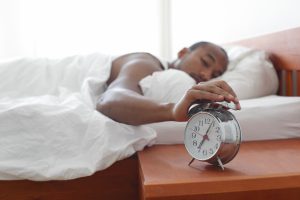We have been consistently educated about drinking enough water being vital to our health. We have been told to drink about two litres of water per day to keep hydrated, but what about sleep? A new study from Pennsylvania State University examined how a good night’s sleep is associated with hydration.

Source: Flickr By: Navy_NADAP
The study looked urine samples from over 20,000 U.S. and Chinese adults, and each participant was surveyed regarding their sleeping habits. From these urine samples, researchers were able to analyze the level of hydration in each participant. It was found that across both country’s populations, participants who were sleeping six hours at night were 16-59% more likely to be dehydrated and had significantly more concentrated urine than participants who slept eight hours on a regular basis.
To understand this phenomenon, researchers linked the association to a hormone called vasopressin. Vasopressin is released in our bodies to help regulate hydration status in the body. While vasopressin is released throughout the day and night, it is released more quickly and later on in the sleep cycle. Therefore, waking up earlier can decrease the amount of this hormone being released and lead to dehydration.
Source: Youtube By: TED-ed
It is important to stay properly hydrated so our bodies can perform its everyday functions. The brain, heart, and muscles all require enough fluids or else it can negatively affect your mood, physical performance, and cognition. If the dehydration continues for a long period of time, it can lead to more serious consequences such as higher susceptibility to certain infections and kidney stones.
Since the study only includes observational data from a particular population, the results are an association and cannot be viewed as causal. However, it provides an interesting insight as to how sleeping patterns may affect our hydration levels.
Written by: Anna Han

2 responses to “Does Sleep Affect Your Hydration?”